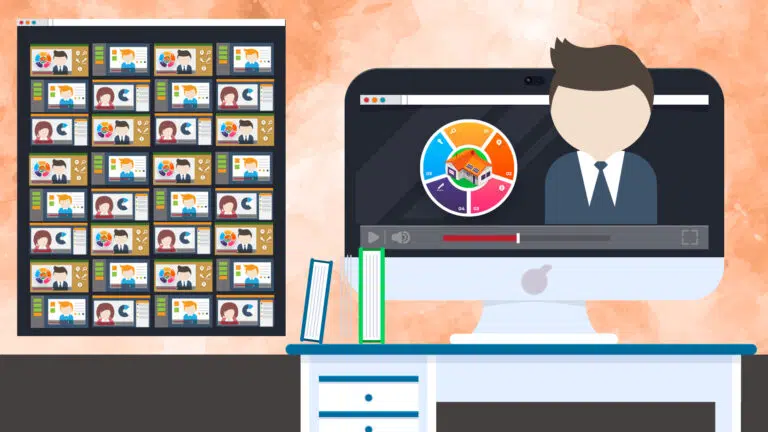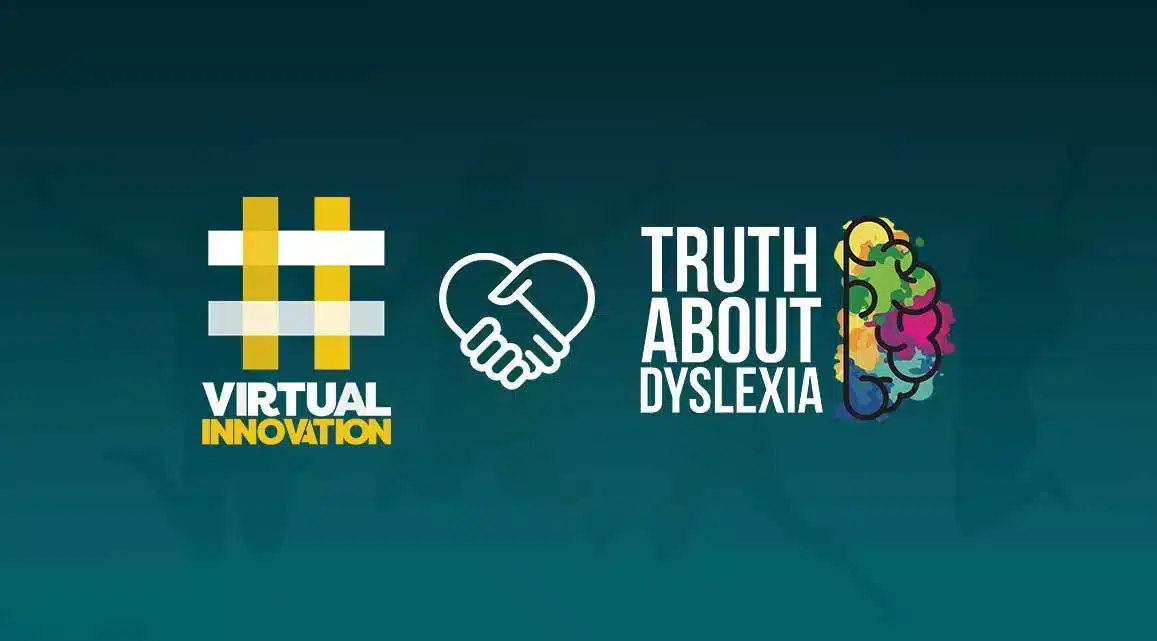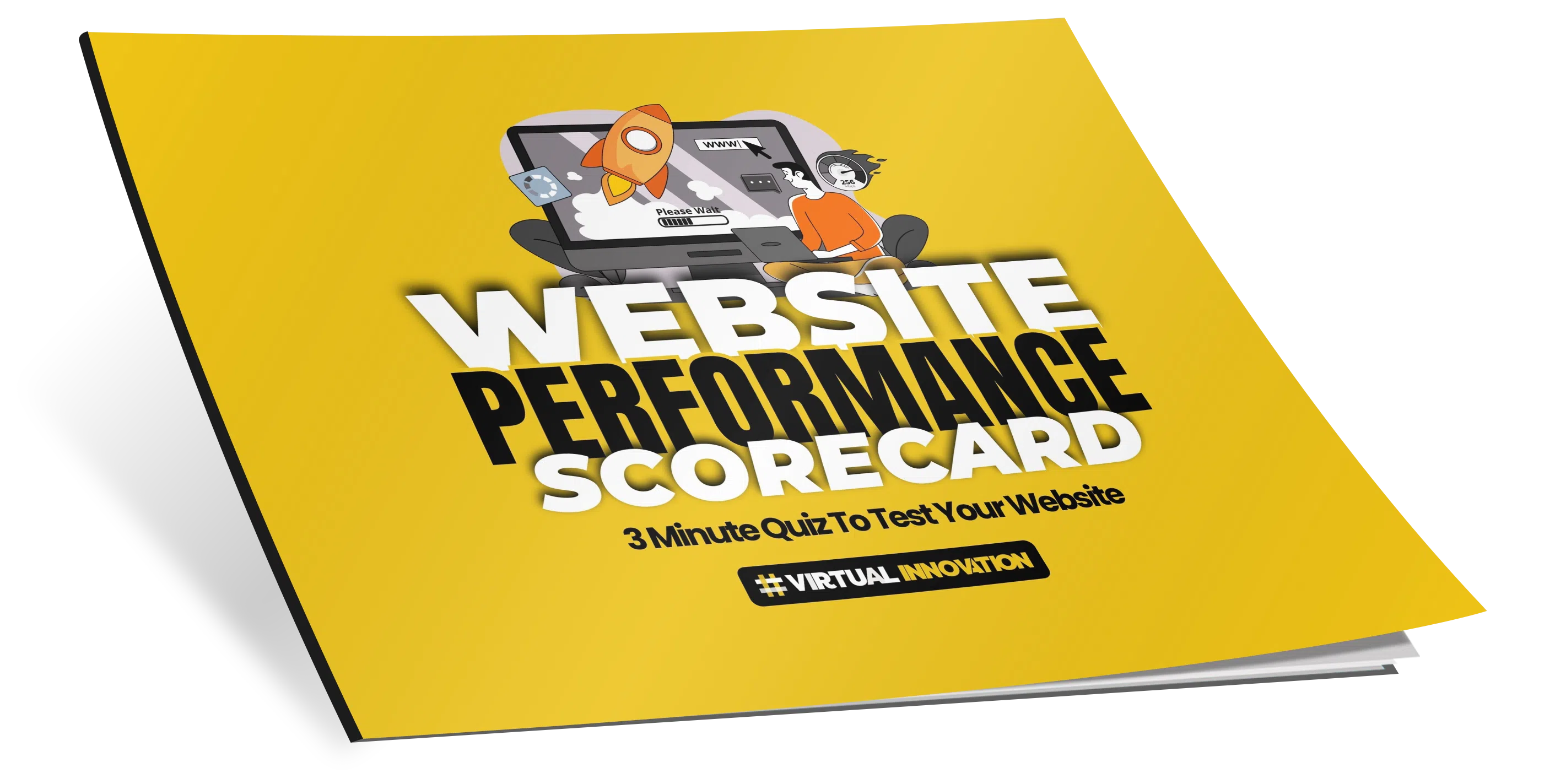
Stephen Martin, a co-founder of Virtual Innovation, is one of the many adults with dyslexia who has found ways to overcome his challenges and succeed in life. Furthermore, Virtual Innovation and its team take great pride in sponsoring and advocating for The Truth About Dyslexia Project.
Dyslexia is a neurological challenge that affects one’s ability to read, write, spell, and comprehend language. It is estimated that between 10-20% (See Yale) of the population has dyslexia, making it one of the most common learning disabilities in the world. Dyslexia can be challenging, but it’s also an opportunity to develop unique skills and perspectives.
Stephen has chosen to share his unique story of living with dyslexia in this article. For those who don’t have the time to read the article, Stephen’s story can be heard through the recording at the beginning of this article. He hopes that by raising awareness and increasing understanding, he can help others through the Truth About Dyslexia Project and his Podcast.
Stephen’s dyslexia was first diagnosed when he was ten years old. At that time, he struggled in the classroom with simple tasks, such as reading and copying notes from the blackboard.
Thankfully, Stephen was diagnosed early, which allowed him to receive additional help from a designated person called a reader-writer, to assist him with his studies.
For someone living with dyslexia, the speed of their ideas can be overwhelming, making it tough to put them into words. To assist him in this endeavour he had an individual who would listen and then write his words down on his behalf.
This support was invaluable and helped him pass his School Certificate, gaining well above average marks in 6 subjects, a significant achievement that he would have otherwise struggled to attain.
However, like many adults with dyslexia, Stephen believed that his challenges with reading and writing would disappear once he finished school. But, it wasn’t until he was 31 when he went through a period where he was constantly anxious and irritable that his father encouraged him to see a dyslexia specialist.
Stephen was initially reluctant to seek professional help. He believed he had grown out of his dyslexia and that the issues he was feeling at the time had nothing to do with dyslexia. He was getting by with normal life with the help of technical aids, such as grammar and spell-checking software.
After trying several methods to quell his emotional roller coaster, he eventually agreed to see a specialist, Vanessa Victor at Remarkable Minds, a dyslexia counsellor, schooled in the Davis technique, who helped him understand the true impact of dyslexia on his life.
During his initial two-hour consultation with Vanessa, Stephen discovered that dyslexia impacted not only his reading and writing abilities but also his visual and spatial thinking and his emotional side which had manifested itself with periods of anxiety and mild bouts of depression.
Vanessa’s insights helped him understand that these were all challenges of neurodiversity and that he wasn’t alone in his struggles.
As Stephen and Vanessa continued with their meeting, a loud bang of a hammer hitting into wood surprised both of them. Immediately, Stephen’s attention shifted away from her and his eyes went up to the right; instinctively curious as to where his mind had travelled off to at that moment, Vanessa inquired about it. Stephen told her that as he heard the hammer hit the nail he could picture a builder hammering a nail into her deck, in his mind.
Asked if he’d been on her deck or met with her builder before, who was doing renovations at the time, he responded no on both counts. Despite Stephen only imagining what happened from the sound he heard, Vanessa continued to describe how the dyslexic mind manages events like this by creating a vision for him that was so vivid that he would internalize it as a real memory.
This experience was a turning point for Stephen, as he realised that his dyslexia had affected his memory and perception of reality.
Stephen’s continued consultations with Vanessa inspired him to create the Truth About Dyslexia Project and Podcast.
The project aims to empower adults with dyslexia and ADHD to reach their full potential in all areas of life, including their professional, social, and emotional lives.
Through this initiative, Stephen hopes to help people understand that dyslexia is not just about reading and writing but a unique way of thinking with its own strengths and challenges.
One of the most significant challenges for adults with dyslexia is that the condition is often misunderstood and stigmatised. Many people believe that dyslexia is a sign of low intelligence or laziness, which can lead to feelings of shame and isolation.
The Truth About Dyslexia Project and Podcast aims to change this perception by sharing stories of people who have overcome dyslexia and succeeded in their chosen fields.
Stephen believes that dyslexia has given him a unique perspective on the world and allowed him to develop skills that he wouldn’t have otherwise. He sees dyslexia as an opportunity rather than a disability and hopes to inspire others to do the same.
After the eye-opening experience with Vanessa, Stephen started to explore his dyslexia in more depth. He began to understand how it affected his daily life and how he could use his strengths to overcome his challenges.
One of the things Stephen learned is that people with dyslexia tend to have strong visual thinking and spatial awareness. They can often see things in their mind’s eye and create a visual picture of concepts and ideas.
This is why Stephen was able to imagine the builder hammering a nail on Vanessa’s deck, even though he had never seen it in person.
However, dyslexia can also create reading, writing, spelling, and memory challenges. People with dyslexia may struggle to decode words, remember information, and organize their thoughts on paper. This can make school, work, and social situations more difficult.
Stephen realised that he had been using coping mechanisms his whole life to manage his dyslexia. For example, he would use mnemonics and visualization techniques to remember information. He would break down complex concepts into smaller parts and use diagrams and images to make them more understandable. He would also use text-to-speech software and voice dictation to help him write and communicate more effectively.
Despite these challenges, Stephen did not let his dyslexia hold him back. He is a serial entrepreneur who co-founded Virtual Innovation, a software development company that creates boutique websites and innovative digital solutions for businesses.
He also became a public speaker and advocate for dyslexia awareness, sharing his story and inspiring others to embrace their strengths and overcome their challenges.
The Truth About Dyslexia Project aims to provide support, education, and resources for adults with dyslexia and ADHD. It includes a podcast, blog, online courses, and community forums where people can share their experiences and learn from each other.
The Truth About Dyslexia Project also focuses on raising awareness about the strengths and talents of people with dyslexia. Stephen believes that dyslexia is not a disability, but a different way of thinking that can bring unique perspectives and creative ideas to the table. He wants to challenge the stigma and negative stereotypes associated with dyslexia and promote a more inclusive and diverse society.
Through his journey and the Truth About Dyslexia Project, Stephen has shown that dyslexia does not have to be a barrier to success. With the proper support and understanding, people with dyslexia can achieve their goals and make a valuable contribution to the world.
Stephen’s story is a powerful reminder of the challenges and strengths of dyslexia. By sharing his personal experiences through his Podcasts which have a huge following (750,000 downloads to date) and advocating for dyslexia awareness, he has inspired many people to embrace their differences and reach their full potential.
The Truth About Dyslexia Project is a valuable resource for anyone who wants to learn more about dyslexia and how to support people with this condition. It covers a wide range of topics related to dyslexia, including tips for managing anxiety, boosting memory, and improving productivity. The project aims to provide individuals with the tools they need to succeed in all areas of their lives.
Stephen’s personal experiences with dyslexia have informed and inspired his work on the project. He knows firsthand how difficult it can be to navigate the challenges of dyslexia and ADHD. But he also knows that with the right tools and support, individuals with dyslexia can thrive.
Stephen’s work on the Truth About Dyslexia Project has also had an impact on his company, Virtual Innovation. The company is committed to promoting diversity and inclusivity in the workplace, and they have implemented policies to support employees with dyslexia and other neurodiverse conditions.
For example, Virtual Innovation has a flexible work environment that accommodates the needs of employees with dyslexia. They also provide additional training and support to help employees with dyslexia thrive in their roles. By creating a supportive workplace culture, Virtual Innovation is helping to break down the barriers that often prevent individuals with dyslexia from reaching their full potential.
Dyslexia is a condition that affects millions of individuals worldwide. It can be a significant challenge, but it doesn’t have to be a barrier to success.
Through Stephen’s work with The Truth About Dyslexia Project and his Podcasts, individuals with dyslexia and ADHD are finding the support and resources they need to thrive.
Stephen’s personal experiences with dyslexia have informed his work and inspired him to make a difference in the lives of others. With the support and sponsorship from his company, Virtual Innovation, his dedication to raising awareness about dyslexia and promoting inclusivity in the workplace is a testament to the power of individual action.
By breaking down barriers and promoting understanding and support, he believes we can create a world where individuals with dyslexia and other neurodiverse conditions can reach their full potential. It starts with education, empathy, and a willingness to listen to the experiences of others.
Finally, don’t forget to reach out, we’re always looking for ways to get the message out further if it’s important to you.
The Truth About Dyslexia Project is in part funded by Virtual Innovation so any support you can give us is very much appreciated.
So that’s all for now. If you are looking for a creative right-brained web design agency, or a big-picture thinker for your next product launch please get in touch we are more than happy to help you.




